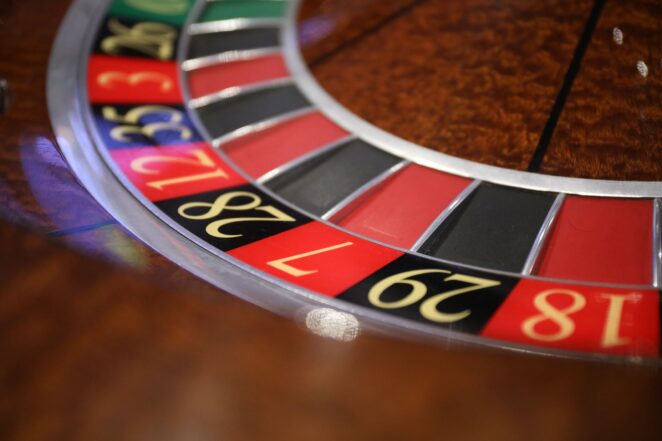Let’s call this a quite adventuristic sport. Can you guess what it is? You’ve seen it basically everywhere – movies, games… it appears in so many ways, forms and shapes. Decks, coins, lemons, cherries, cards – the list goes on. And let’s not forget its cradle, Las Vegas. Yes, you’ve guessed it. Today, we’re talking about gambling.
As a kid, you’ve probably played Monopoly, and oh my, did it feel good. Winning everything, building houses, must’ve filled you up with that competitive energy and winner spirit. But it’s all fun and games until it becomes an addiction. All that aside, after all, money makes the world go round, and nowadays people seem to be excessively obsessed with it, whether they’d like to admit it or not.
So, if you’re on a roll and are constantly winning, blood is rushing through your veins, the feeling is amazing, then you probably ask yourself – ‘’What could possibly go wrong? I get to keep all the money I got and splurge on whatever I please.’’ Well, that is not the case.
Many people actually don’t know about income gambling taxes. Of course, it isn’t the same for everyone, as you have professional gamblers and recreational gamblers as well. But let’s get to the basics, shall we?

The money you actually win from these adrenaline-rush games is taxable by the IRS. To keep you off wondering what’s taxable – we’d say probably everything. Here are a few examples we’ve got for you: casino games, slot machines, lotteries, poker tournaments, raffles, betting pools, horse/dog races, even Bingo. The list is quite long and it goes on – and everyone who opts for betting ventures should know this. You know… just in case so that it doesn’t come as a surprise later.
The precise and easy way to check your winnings and losses is to visit some of the websites that offer free tax return forms. You’ll be posed a few questions and these apps will generate all the necessary forms to report your gambling or betting hits and misses on the tax return.
So, by law, all the winners would have to report winnings on the federal income tax returns. For example, you may receive a form W-2G, that shows the amount of the winning, and the amount of tax withheld. This form has to be prepared, and even if not received, all winnings have to be reported on your return.

How much do you need to pay? Honestly – it depends on the situation. The federal gambling tax is fixed at 24%. If, by any chance you didn’t provide an ID, it could rise to 28%. On the bright side, if you play at licensed casinos, such as UFA – which isn’t only completely legal and licensed, but it also has a specific cheater-free system – you can rest assured that everything is proper with tax-related activities.
Now, as we all like to keep the money to ourselves – because, you know, the more the merrier – there’s a question any gambler would ask themselves – what if I don’t report this? How can I possibly keep it hidden?
If you haven’t won a huge amount, or precisely, if it’s below $1200, then you’ll probably do just fine and nothing will happen, as these amounts aren’t reported on a regular basis. But if you win money from a certain party – let’s say from the casino – they have to file a report we’ve mentioned above to the IRS, and they usually do. If this doesn’t happen, the IRS would adjust the return and would reduce the refund, and you’d probably get billed appropriately for the additional tax.
Can you use your gambling losses for tax deduction though?

Indeed, you can. The deductions might not exceed the amount won originally, but everything counts. You should keep in mind that you should report all losses and winnings separately. This is why it would be good to keep track of those. Some of the options IRS is suggesting are to keep the slips, tickets, receipts and all the paperwork.
So, this can be a diary of some sort, where you should put the type of gambling activity, the date, location, establishment and how much was won or lost. For example, if you opted for Bingo the day before, you’d need to put this in your diary: how many games have been played, how much the tickets cost, if there were any additional receipts, and what amount has been obtained on the tickets that won.
When it comes to dogs or horse races, what you need to keep in your diary is an actual record of all the races you betted on, the amount collected on the tickets that won, but also the losing ones, amount of wagers… You’d need to keep unredeemed tickets and payment records from the race tracks. In case you decided to test your luck with lotteries – again, keep a record of tickets you’ve purchased, write down the dates, amounts won and losses. Keep the payment slips as well.

This is certainly something that applies to recreational gamblers. But what does this mean for professional gamblers? They’re simply obliged to keep everything on record and write down any single thing related to their bets or gambling, as this is their job. If this is your profession, then this type of income is considered as a regular one and it’s taxed as normal income tax rate – just like any other incomes from various other sources. Since you count as a self-employed person, you need to report the income on Schedule C, and everything will be automatically generated.
What matters is that, in case you’re winning less than $1,200, you can remain peaceful, as you won’t face any legal issues if you decide not to report them. However, in case your incomes are bigger, there are big chances that it will be noticed. You’ll probably get a letter which notifies you that the irregularity has been noticed and in which you’ll be asked to fulfill your legal duties. If this goes too far, the possibility that the IRS might take you to court isn’t excluded – as a matter of fact, this is quite likely to happen.
Even though you won’t face jail and there is no legal risk if gambling is only an occasional fun for you, we would always suggest that, if you win a bigger amount of money, you should always respect laws and procedures and to report all income you have, to avoid any possible complications. Sometimes it’s rather difficult to get some bigger sums of cash – so make sure you do your best not to lose them. Best of luck, and we hope you get those three cherries!
 Vermont Republic Second Vermont Republic
Vermont Republic Second Vermont Republic




